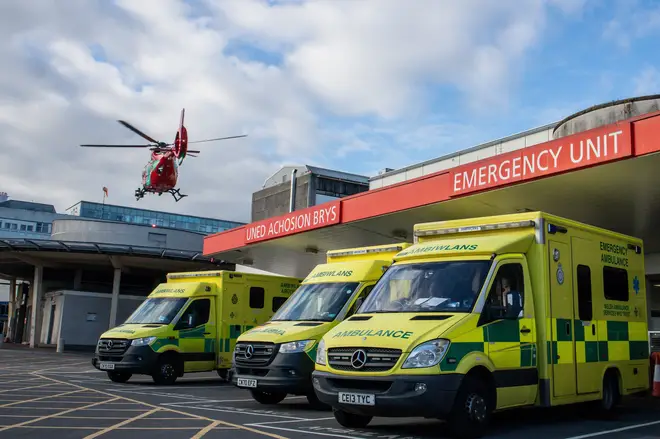
Nick Abbot 12am - 1am
21 December 2020, 16:37

Wales' largest hospital ran out of critical care beds across the weekend, LBC can reveal, as Covid cases in the country soared.
Cardiff and Vale University Health Board reached ICU capacity, including the University Hospital of Wales in Cardiff.
On Sunday, capacity shrunk to its lowest level of just 41 beds, less than half of the 81 that were available at the start of December.
Read more: Multiple London hospitals suspend non-urgent operations due to Covid-19 pressures
Read more: Coronavirus: France to lift ban on lorries 'within hours' after closing border
Around 40 percent of the ICU patients at Cardiff and Vale were being treated for coronavirus.
The health board has not postponed non-urgent care but that is expected if things do not improve.

Sage expert says new variant does not pose more risk of hospitalisation
A spokesperson for Cardiff and Vale University Health Board, said: “We are currently facing substantial winter and COVID-19 pressures.
"The Health Board has not reduced its surgical activity at this point and continues to deliver cancer and emergency surgery.
"Processes are in place to continuously monitor capacity and demand to prioritise safe and effective patient care."
It is not the first health board in Wales to reach critical care capacity.
Aneurin Bevan University Health Board recorded no spare ICU beds on 16 December, while Cwm Taf Morgannwg University Health Board had no spare critical care beds from 16-19 December.
Both those health boards along with Hywel Dda and Swansea Bay have already taken the decision to postpone non urgent surgery and appointments
There are currently 180 patients in intensive care across Wales, 93 of them with Covid-19 (52 per cent).